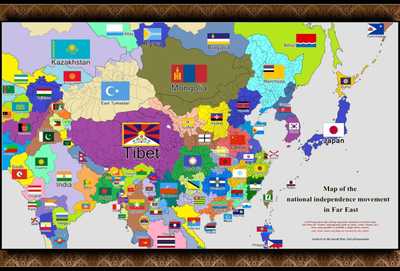>China is a bunch of fellaheen peasants in that they haven't had a proper warrior aristocracy of any honor for a very long time, and they have disgustingly vulgar habits like torturing and eating cats and such. Maybe that's what this guy means?Indeed I think this is the fundamental point that Mr. Liu argues for. Mr. King's article is an attempt to summarize Mr. Liu's thoughts in Chinese with an English article with its length on the order of a fraction of a percentage point of Mr. Liu's output, and so, can only give a small inkling of Mr. Liu's influence on the Chinese internet. Granted, a lot of Mr. Liu's output in Chinese is somewhat rambling, and it is unclear how much it is being mechanized by troll farms.
The key point in Mr. Liu's theory is that what appears to the West as ethnoregenesis
is fundamentally as impossible as ethnoregenesis of the Roman people. Whenever the CCP compares itself to being as glorious as the Tang civilization it has to be regarded as LARP-ing. No amount of building Tang-based amusement parks, showcasing the Sogdian whirl dance on TV, or Tang-inspired animation films can revive the past glory of the Tang (which was a warrior-aristocracy with Central Asian steppe blood). The Party, according to my understanding of his view, has as its nucleus the descendants of senior Party leaders dating to the foundation of the Party at the May Fourth Movement, now most notably represented by none other than the Party General Secretary himself. But the Party that Mr. Liu describes, is not merely the Communist Party (the Red Party), but also the Nationalist Party (the White Party). Both, in fact, depend on the notion of the One China Policy to justify their existence and legitimacy.
If this framework is to be taken seriously, then the past 40 years represents a kind of victory for the White Party, at least in the coastal regions which were "reformed and opened up", allowing bourgeois ideas and values to enter the southeastern coast, thereby allowing for industrial development. Nevertheless China as a whole is controlled by the Party. Wherever there are Chinese people (as constructed by the Chinese nationalist movement dating to the late 19th/early 20th century) in power, there is China. The New Culture Movement, which asserts many decadent ideas ostensibly from the West of the time, cannot be repudiated any more by either the White or Red Party than the notion of China as a nation rather than a Confucian culture.
Mr. Liu is of the opinion that this is not simply an ideological problem for the Chinese state. Pragmatically, it will destabilize the "Chinese nation" by creating further incentives for industrialists in, for example, the Pearl River Delta and the Yangtze River Delta to collude and find ways to evade the Peking tax collection agencies. So-called corruption scandals, can easily be re-interpreted as acts of heroic national patriotism against Chinese occupation (e.g.
https://www.nytimes.com/2012/05/19/world/asia/chinese-tycoon-gets-life-sentence-for-smuggling.html). It is in this sense that Mr. Liu sees the potential seeds for a new spontaneous order to emerge. The idea definitely seems a little kooky at first glance, but one should never underestimate the ability of businessmen in southern China to bend the rules.
